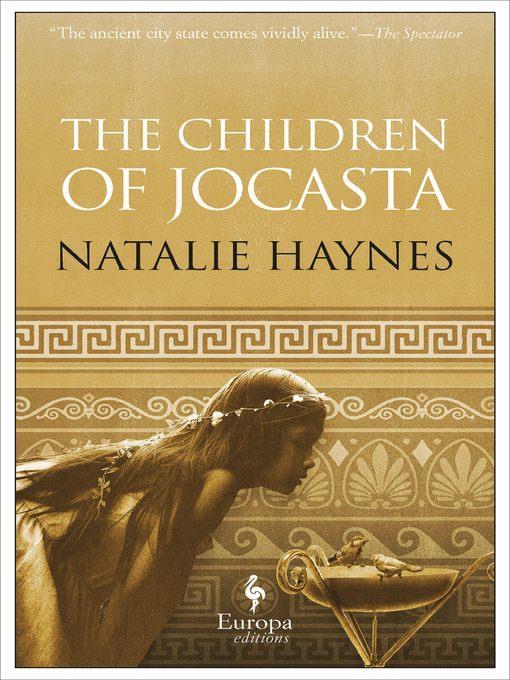
The Children of Jocasta
کتاب های مرتبط
- اطلاعات
- نقد و بررسی
- دیدگاه کاربران
نقد و بررسی

September 24, 2018
The legends of Oedipus and his daughter Antigone are told through two interwoven story lines in Haynes’s dark, elegant novel (following The Furies). An urgent, first-person narrative introduces Ismene just as she learns of the murder of her sister, Antigone. Then, a statelier third-person voice introduces Jocasta, as she is giving birth. The narrative flashes back to Jocasta’s reluctant marriage to unappealing King Laius, who’s in desperate need of an heir. Jocasta’s newborn (who will grow to be Oedipus) is whisked away from Jocasta, who’s told that the baby did not survive. Grief over the loss of her child lingers, and Jocasta becomes closer to her brother, Creon, distancing herself from the royal family. Decades later, Laius is killed by Oedipus, who woos Jocasta, despite her age. Ismene’s narrative also flashes back, to her idyllic childhood with siblings Antigone, Eteocles, and Polynices. The first half of the novel is dominated by Jocasta and, after Oedipus’s ascent to the throne, switches primarily to Ismene and her grief when Antigone sacrifices herself to bring an honorable burial to her brothers, war casualties fighting on different sides. The hopefulness of her voice plays evocatively against Jocasta’s more ominous and somber narrative. Haynes’s greatest achievement is imagining a full world surrounding Sophocles’s tragedies, thrusting two minor characters in their respective plays to the forefront and bringing the myths vividly to life.

September 15, 2018
Two women, two Greek tragedies, one modern revamping.British classicist Haynes writes a rejoinder--in fiction--to the near muteness of women in ancient Western texts. As she did with her psychological thriller, The Furies (2014), Haynes dives straight for Sophocles' monumental plays. This time, she puts a mother and daughter on center stage instead of Sophocles' title characters in Oedipus Tyrannus and Antigone. Each woman has "the sense that someone was nearby, wishing her ill." For Queen Jocasta of Thebes, it is the housekeeper Teresa, whose wickedness puts Mrs. Danvers of Rebecca to shame. For Jocasta's youngest child, Ismene, the menace arrives in the first chapter. An orphan from age 5, the bookish 15-year-old leaves her reading nook only to be knifed by a stranger in the assumed safety of the palace. This thwarted political assassination dissolves into Chapter 2, which introduces Jocasta at the same age, bundled off a generation earlier to wed Thebes' fossilized King Laius. This complex opening structure settles into chapters that alternate between the two women. The device works well, building tension as mother and daughter both struggle with confinement, treachery, politics, and hair. (Some verities apparently hold for 2.5 millennia.) After Laius dies, Jocasta becomes notorious--and thanks to Sophocles, immortal--for unwittingly marrying her son, Oedipus. This Gordian knot of incest still has the power to shock, and Haynes is deft with it and with its consequences for the next generation. Her grasp of the ancient city-state is marvelously firm. Her sturdy sentences conjure the punishing Greek summer heat that quells movement and the gold rings bunching the fat on the fingers of florid men. But unlike the classically inspired novels of Madeline Miller or Colm Tóibín, antiquity bogs down in Haynes' expository prose. And while the author adds an intriguing new character, the physician Sophon who is instrumental to both mother and daughter, the women themselves remain too flat on the page.Characters aren't as strong as the plot borrowed from antiquity.
COPYRIGHT(2018) Kirkus Reviews, ALL RIGHTS RESERVED.

























دیدگاه کاربران